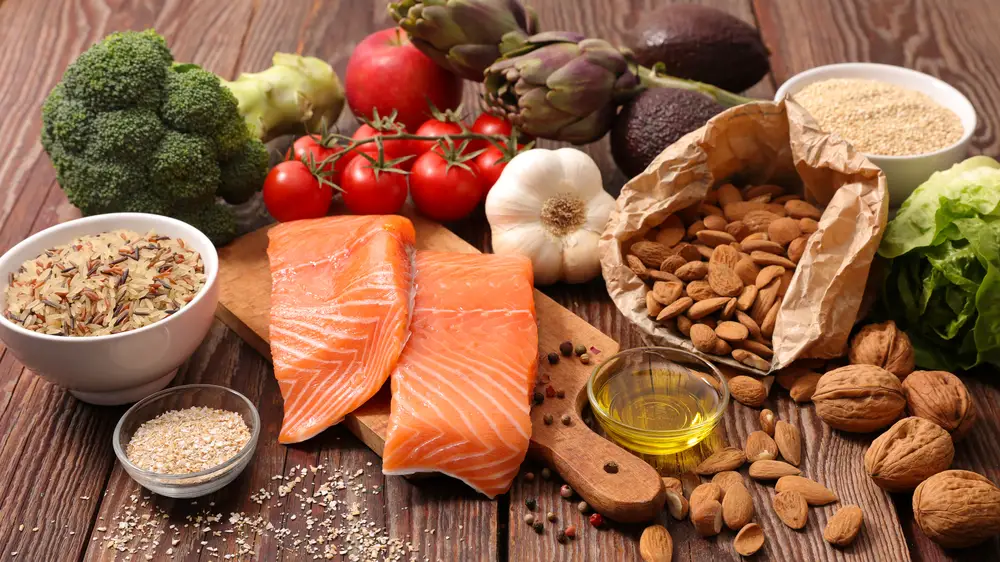The lymphatic system plays a crucial role in maintaining the body’s immunity and regulating fluid balance. Consisting of a complex network of vessels, nodes, and organs like the spleen and tonsils, the lymphatic system is instrumental in ensuring overall wellbeing. One of the ways to support this vital system is by understanding the impact of dietary choices on lymphatic function and drainage.
Certain foods can have a negative effect on the lymphatic system, potentially impairing its ability to perform its duties effectively.
Prioritising a healthy and balanced diet can help in preserving the integrity of this system and maintaining overall health. This article will explore the worst foods for the lymphatic system while providing insights and recommendations for better dietary choices.
Understanding the Lymphatic System
The lymphatic system is a vital part of the human body, playing a crucial role in maintaining overall health and immunity. Its primary functions include the transportation of lymph fluid, the removal of waste products from cells and tissues, and the support of the immune system in fighting infections.
Lymph fluid is a clear, colourless liquid that flows through a complex network of lymph vessels and nodes. It helps maintain the balance of fluids within the body and assists in the absorption of fats and fat-soluble vitamins from the digestive system. Additionally, the lymphatic system produces and transports essential immune cells like lymphocytes, which help the body combat harmful pathogens and defend against diseases.
Lymph nodes are small, bean-shaped organs distributed throughout the body. They serve as filtering stations for the lymph fluid, capturing and eliminating foreign substances such as bacteria, viruses, and toxins. In doing so, they contribute to the immune system’s ability to launch a targeted response against infections and inflammation.
The lymphatic system is intricately connected to the body’s microbiome, which plays a crucial role in maintaining a healthy immune system and regulating inflammation. A fine balance in the microbiome is essential for optimum lymphatic function, as an imbalanced microbiome can contribute to inflammation and compromised immunity.
Swelling and inflammation are typical bodily responses to injury, infection, or an imbalance within the body. The lymphatic system aids in reducing both swelling and inflammation by helping to transport and remove waste products, excess fluids, and debris from damaged tissues. In doing so, it allows for quicker healing and supports the body’s natural ability to restore balance.
In conclusion, the lymphatic system is a complex and essential part of the human body, interconnected with other crucial systems, such as the immune system and the microbiome. Its primary functions include supporting immunity, regulating fluid balance, and aiding in the removal of waste products and toxins from the body.
Maintaining lymphatic health is crucial for overall wellness, and an understanding of its functions can help individuals make informed decisions about their diet, exercise, and lifestyle habits to support this vital system.
The Impact of Unhealthy Diet on Lymphatic System
An unhealthy diet can significantly affect the lymphatic system, which plays a crucial role in maintaining proper immune function and regulating body fluid balance. Consuming foods high in sugars, fats, and processed
Specific Foods and Their Negative Effects
Processed Foods
Processed foods can lead to an accumulation of toxins in the lymphatic system. These foods often contain preservatives, additives, and unhealthy fats, all of which can impair lymphatic functioning. It is important to limit the consumption of processed foods and opt for fresh, whole foods whenever possible.
Sugars and Sweeteners
Excess sugars and sweeteners, including artificial sweeteners, can contribute to inflammation throughout the body. Inflammation can negatively impact the lymphatic system, making it difficult for lymphatic fluid to flow properly. Reducing the intake of added sugars and sweeteners is an essential step in supporting lymphatic health.
High-Fat Foods
A diet high in unhealthy fats, such as saturated and trans fats, can contribute to poor lymphatic function. Unhealthy fats can cause inflammation, which can impair lymph flow. It is recommended to focus on consuming healthy fats, such as those found in avocados, nuts, and olive oil, and limit unhealthy fats.
Dairy Products
Some individuals may experience difficulty in breaking down the proteins found in dairy products. This can lead to increased congestion in the lymphatic system. Reducing dairy intake or opting for plant-based alternatives can help support lymphatic functioning for those who may be sensitive to dairy products.
Red and Processed Meats
Red and processed meats can also contribute to inflammation within the body, negatively impacting the lymphatic system. Limiting the consumption of red and processed meats and focusing on plant-based protein sources, such as legumes, can support overall lymphatic health.
Caffeinated Drinks
Caffeinated drinks, such as coffee and energy drinks, can cause dehydration. Dehydration can impair lymphatic function, as the body requires adequate hydration to effectively remove waste and toxins. Limiting caffeine intake and staying well-hydrated is crucial for maintaining healthy lymphatic flow.
Salt and High-Sodium Foods
A high-sodium diet can disrupt the fluid balance in the body, leading to fluid retention. Excess fluid retention can put pressure on the lymphatic system, affecting its ability to properly drain waste and toxins. Reducing salt intake and choosing low-sodium foods can help support the lymphatic system.
Alcohol
Alcohol can negatively impact the immune system, impairing its ability to fight off infections. As the lymphatic system is a crucial component of the immune system, excessive alcohol intake can lead to a weakened immune response and impaired lymphatic functioning. Limiting alcohol consumption is an important factor in maintaining lymphatic health.
Understanding Lymphedema and Its Dietary Impact
Lymphedema is a chronic condition that leads to swelling in the body’s tissues, often affecting the arms or legs. This condition develops when the lymphatic system does not function properly, causing excess fluid to accumulate in certain areas. The lymphatic system plays a crucial role in immune function, as it is responsible for fighting infection and removing harmful substances from the body.
Inflammation and fluid retention are common symptoms of lymphedema. Consequently, maintaining a healthy diet can be particularly beneficial in managing this condition. Certain foods may help support the immune system and reduce the chances of infection, while others might contribute to inflammation and worsen fluid retention.
It is essential for individuals with lymphedema to be conscious of their dietary choices, as they are at a higher risk of developing conditions like cellulitis and lymphangitis. Both of these infections can create further complications and aggravate lymphedema symptoms.
When focusing on nutritional intake, people with lymphedema should prioritize incorporating anti-inflammatory foods that support lymphatic function. For example, consuming leafy green vegetables, berries, and legumes can provide essential nutrients and antioxidants. Additionally, hydration is a key component in lymphatic system health, so drinking an adequate amount of water is crucial.
On the other hand, certain foods should be avoided or limited to minimize lymphedema complications. Unhealthy fats, such as hydrogenated oils, trans-fats, and chemically modified fats, can exacerbate inflammation and fluid retention, making it more difficult for the lymphatic system to properly drain fluids. Moreover, high-fat dairy products and fatty cuts of meat may also hinder lymphatic drainage, thereby intensifying the swelling.
In conclusion, adopting a balanced and nutrient-rich diet is a significant aspect of managing lymphedema. Being mindful of dietary choices allows for better control of fluid retention and inflammation while also supporting the body’s immune function.
Other Factors Impacting the Lymphatic System
In addition to dietary choices, several other factors can also impact the proper functioning of the lymphatic system. Understanding these factors helps in the management and prevention of conditions related to the lymphatic system.
One of the main factors that can affect the lymphatic system is the presence of diseases and illnesses. Certain types of cancer, such as lymphoma, can directly target the lymphatic system and impair its function. Other cancers may also indirectly impact the lymphatic system when cancer cells block lymph vessels and disrupt the normal flow of lymphatic fluid.
Radiation therapy, which is a common treatment for cancer, can also lead to damage in the lymphatic system. This treatment can cause inflammation, scarring, or narrowing of the lymph vessels, subsequently reducing their capacity to transport fluid effectively.
Such changes to the lymphatic system increase the risk of developing lymphedema, a condition characterised by swelling due to fluid accumulation in the body tissues.
Infections caused by bacteria and viruses also have the potential to impact the lymphatic system negatively. These pathogens can lead to inflammatory responses within the lymphatic vessels and nodes, which can impair the normal flow of lymph.
Notably, bacterial infections can cause lymphangitis, an inflammation of the lymphatic vessels, while viral infections, such as the Epstein-Barr virus, can lead to the swelling of lymph nodes, known as lymphadenopathy.
Toxins present in the environment, such as pollutants, chemicals, and heavy metals, can also have detrimental effects on the lymphatic system. Exposure to these toxins can cause inflammation and oxidative stress within the lymphatic vessels, impairing their ability to function optimally and efficiently remove waste and toxins from the body.
In summary, various factors, including diseases, cancer, radiation therapy, bacteria, viruses, and toxins, can impact the overall health and function of the lymphatic system. Being aware of these factors and taking measures to minimise their effects on the lymphatic system is essential for effective lymphatic system management and overall health.
Healthy Alternatives for a Robust Lymphatic System
A well-balanced diet is crucial for maintaining a healthy lymphatic system. Incorporating a variety of fruits and vegetables can provide essential vitamins, minerals, and fibre, which contribute to overall immune function. Choose fresh fruits, such as berries, citrus fruits, and apples for their high content of antioxidants and nutrients.
Similarly, vegetables like leafy greens, broccoli, and cauliflower should form a significant part of the diet.
Fish is an excellent source of protein, and it also contains omega-3 fatty acids that help reduce inflammation and promote lymphatic health. Cold-water fish, such as salmon, mackerel, and sardines, are the best options to support a healthy lymphatic system.
Adding yogurt to your diet can promote the proper functioning of the lymphatic system, as it contains probiotics that improve gut health and immunity. Opt for plain yogurt or those with low sugar content, and consider adding fresh fruits for flavour.
Nuts and seeds are beneficial for lymphatic health, as they contain healthy fats, proteins, and essential nutrients. Almonds, walnuts, sunflower seeds, and chia seeds are just a few examples of nuts and seeds that can be incorporated into a well-rounded diet.
Staying hydrated is essential for maintaining a healthy lymphatic system, as water assists in flushing out toxins and waste products. Drinking an adequate amount of water throughout the day is crucial for maintaining overall health and ensuring proper lymphatic functioning.
Incorporating whole grains into your diet promotes lymphatic drainage by providing fibre and essential nutrients. Brown rice, quinoa, oats, and barley are examples of whole grains that can be incorporated into your daily meals.
A sufficient level of protein is crucial in supporting the immune system, including the lymphatic system. Choose lean protein sources such as chicken, turkey, beans, and lentils, which provide essential amino acids that help maintain lymphatic health.
In summary, a well-balanced diet rich in fruits, vegetables, fish, yogurt, nuts, seeds, water, whole grains, and lean proteins forms the foundation of a healthy lymphatic system. Ensuring proper nutrition and hydration can help your body fight off infections, remove waste products, and maintain overall health.
My name is Ellis Francis and I have been a personal fitness trainer, sports nutritionalist and health and fitness advisor for over 25 years. I am the lead health and fitness advisor at https://awellnessbody.com.







